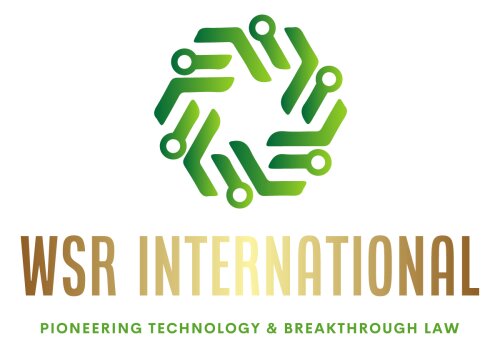Best Collaborative Law Lawyers in Bangkok
Share your needs with us, get contacted by law firms.
Free. Takes 2 min.
Free Guide to Hiring a Family Lawyer
List of the best lawyers in Bangkok, Thailand
Thailand Collaborative Law Legal Questions answered by Lawyers
Browse our 1 legal question about Collaborative Law in Thailand and read the lawyer answers, or ask your own questions for free.
- Divorce rights and obligations
- I am Dutch and married for 13 years with a Thai wife. Over the past 10 years we lived outside Thailand as I was an expat. From our marriage we have a daughter of 10 years and is studying at the international school. We have a house in Chiang Mai... Read more →
-
Lawyer answer by SORASAK LAWFIRM
Dear Sir, Subject: Family, Divorce & Separation, Contract and Collaborative Law Thanks you for your email received today. Incase of foreigner husband and Thai wife under Thai law, the marriage property will be forced by hasband's country law accept that...
Read full answer
About Collaborative Law in Bangkok, Thailand
Collaborative Law in Bangkok, Thailand, is a legal process focused on resolving family disputes amicably, without going to court. It emphasizes open communication and cooperation between the parties involved, allowing them to reach mutually beneficial agreements. This method is particularly significant in divorce and child custody cases, where maintaining relationships and minimizing emotional stress is a priority. Lawyers who specialize in Collaborative Law facilitate negotiations, helping parties maintain control over the outcome rather than having a court impose decisions.
Why You May Need a Lawyer
Many situations may necessitate seeking legal advice in Collaborative Law. These typically involve family-related matters such as divorce, child custody arrangements, division of assets, or co-parenting agreements. If you're facing a situation where maintaining an amicable relationship with another party is essential, a Collaborative Law lawyer can provide guidance. They can help structure negotiations, draft agreements, and ensure that the legal outcome aligns with the interests of all involved. Additionally, for individuals who prefer a more private resolution process, Collaborative Law offers a confidential alternative to court appearances.
Local Laws Overview
The legal framework for Collaborative Law in Bangkok reflects both local and international practices aimed at peaceful dispute resolution. Family law in Thailand is governed by the Civil and Commercial Code, which lays out provisions for marriage, divorce, and child custody. While the law provides for adversarial court proceedings, Collaborative Law offers an alternative path that aligns with Thailand's cultural emphasis on harmony and compromise. Lawyers practicing in this field are trained to manage conflict resolution through structured communication, ensuring that legal solutions are culturally appropriate and legally sound.
Frequently Asked Questions
What is Collaborative Law?
Collaborative Law is a legal process that focuses on cooperation and negotiation to resolve disputes outside of the courtroom. It is particularly effective in family law cases like divorce and child custody.
How does Collaborative Law work in practice?
In a Collaborative Law process, both parties hire their own lawyers trained in collaborative practices. All parties agree to work together to reach a settlement without going to court. If the process breaks down, the collaborative lawyers must withdraw from the case.
What are the benefits of Collaborative Law over traditional litigation?
Collaborative Law allows for more control over the outcome, promotes cooperative communication, reduces emotional stress, and maintains privacy compared to contentious court battles.
Is Collaborative Law legally recognized in Thailand?
While not specifically legislated, Collaborative Law practices align with Thai legal principles of amicable dispute resolution and are recognized as a valid approach to family law cases.
Can Collaborative Law be used for issues other than family law?
While primarily used for family law matters, the principles of Collaborative Law can be adapted to other areas of civil disputes where parties seek an amicable resolution.
What happens if no agreement is reached in the collaborative process?
If an agreement cannot be reached, the collaborative process ends, and the parties may choose to pursue litigation with new legal representation.
Are the agreements reached through Collaborative Law legally binding?
Yes, agreements reached through Collaborative Law are typically formalized in writing and can be enforceable by the court if they adhere to legal standards.
How long does the Collaborative Law process take?
The timeline for Collaborative Law varies depending on the complexity of the issues and the willingness of parties to negotiate. It is often quicker than traditional court proceedings.
Can children participate in the Collaborative Law process?
Professionals may involve children in appropriate ways, such as through child specialists who can provide insights without placing undue burden on the children themselves.
What should I look for in a Collaborative Law lawyer?
Look for a lawyer trained in conflict resolution and collaborative practices, with experience in family law and a good understanding of both local laws and cultural considerations.
Additional Resources
For those seeking more information on Collaborative Law in Bangkok, helpful resources include the Thai Bar Association, the Law Society of Thailand, and family support organizations. These bodies can provide guidance and referrals to skilled collaborative lawyers. Additionally, consider consulting with the Ministry of Justice for further information on family law regulations and processes.
Next Steps
If you require legal assistance with a family dispute and are interested in pursuing a collaborative approach, begin by researching and contacting lawyers who specialize in Collaborative Law in Bangkok. Schedule initial consultations to discuss your situation and learn about their experience and approach. Be open to exploring alternative dispute resolution methods, and ensure that any chosen lawyer is fully accredited and experienced in collaborative practices. Taking these steps can help you move forward with more control over the resolution process in a supportive and constructive environment.
Lawzana helps you find the best lawyers and law firms in Bangkok through a curated and pre-screened list of qualified legal professionals. Our platform offers rankings and detailed profiles of attorneys and law firms, allowing you to compare based on practice areas, including Collaborative Law, experience, and client feedback.
Each profile includes a description of the firm's areas of practice, client reviews, team members and partners, year of establishment, spoken languages, office locations, contact information, social media presence, and any published articles or resources. Most firms on our platform speak English and are experienced in both local and international legal matters.
Get a quote from top-rated law firms in Bangkok, Thailand — quickly, securely, and without unnecessary hassle.
Disclaimer:
The information provided on this page is for general informational purposes only and does not constitute legal advice. While we strive to ensure the accuracy and relevance of the content, legal information may change over time, and interpretations of the law can vary. You should always consult with a qualified legal professional for advice specific to your situation.
We disclaim all liability for actions taken or not taken based on the content of this page. If you believe any information is incorrect or outdated, please contact us, and we will review and update it where appropriate.

















